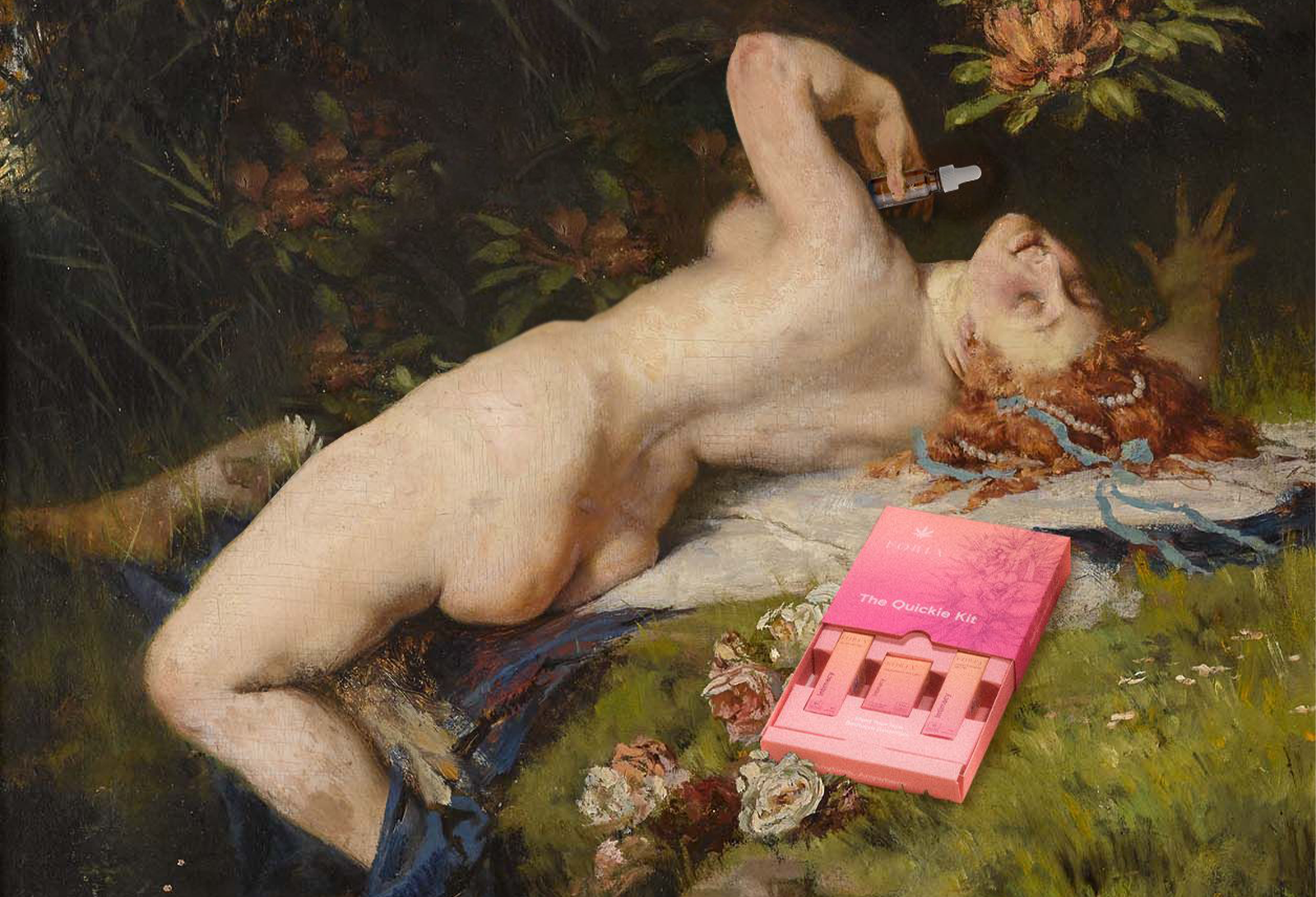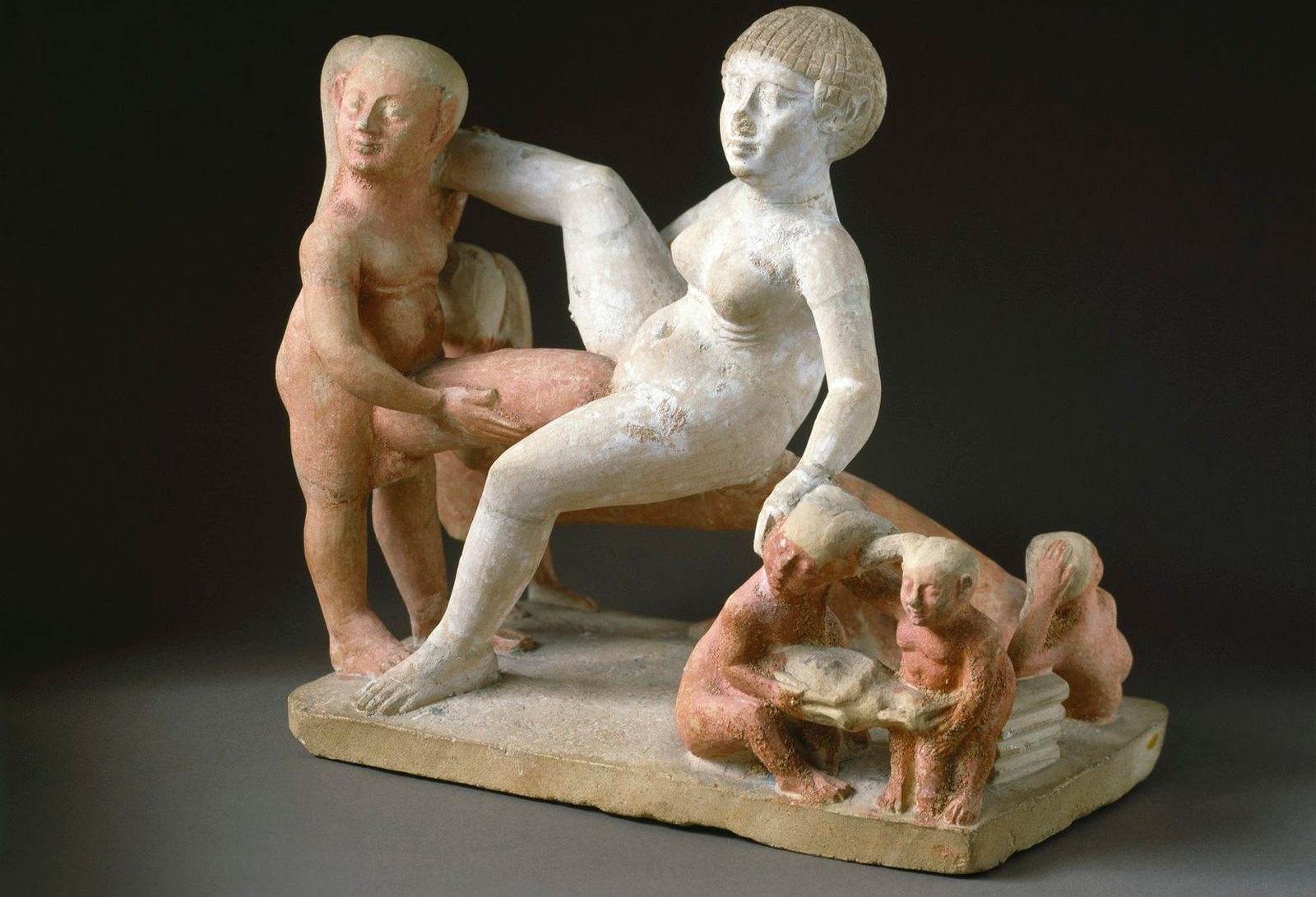Throughout history, female pleasure has been policed, objectified, and treated as taboo. Last year, BeautyMatter saw this firsthand when an article on why social media censors female-bodied health was removed by LinkedIn. Institutionalized sexism and internalized misogyny prevent sexual wellness brands from advertising on traditional social networks, which means they have to get creative with their marketing efforts.
Foria is an “OG” in the sexual wellness industry and ignited the women’s sexual pleasure movement back in 2014 when the brand debuted its best-selling line CBD-infused sexual wellness products. Today, the brand continues to advocate for sexual well-being to be seen as a foundational component of overall health. Foria’s newest campaign subverts draconian censorship policies by inviting its community to seek out and share prominent “O-faces” in art and media as part of their OG O-Face Campaign.
“The goal of our OG O-Face Campaign is to honor and acknowledge the past by observing and interrogating historical depictions of female pleasure,” Liz Dolinski, Chief Marketing Officer of Foria, tells BeautyMatter. “By looking closely at history, we hope to recognize and celebrate the great progress we’ve made, while also acknowledging some of the hurdles that Foria and the sexual health industry as a whole still faces.”
As part of this campaign, Foria commissioned and spearheaded an interactive digital scavenger hunt featuring feminist art on view at the Brooklyn Museum. For those not in New York City, Foria encourages its community to search for O-faces in their everyday life, whether in a museum, a mural, or a print in your local cafe.
“By celebrating expressions of pleasure in art through our OG O-Face Campaign, we will continue to destigmatize sexual wellness as a foundational part of human health,” says Dolinski.
Most people won’t need an explanation for what’s considered an O-face, but in case you do, some famous O-faces include Woman with a Parrot by Gustave Courbet, on display at The Metropolitan Museum of Art in NYC and Madonna, Loving Woman by Edvard Munch at the National Museum of Norway.
Foria’s compelling campaign is running from March 9 to March 31. To enter, all you have to do is find and photograph art featuring one (or more) of the following:
Anyone that posts the O-face they spotted in the wild and tags @foriawellness will be entered to win a year’s supply of Foria’s Awaken Arousal Oil and Sex Oil. Five winners will also win a $100 Foria gift card and membership to their local museum of choice (up to $100 value). The brand will be sharing the campaign details publicly on its social channels, newsletter, and website for NYC locals and visitors alike to join in on the hunt for O-faces in the coming weeks.
The campaign was created to celebrate Foria’s history, as well as the history of female pleasure and power in art and media for Women’s History Month. When the brand launched in 2014, there were 26 products for men’s sexual pleasure on the market, but zero for women. Foria recognized this discrepancy and started what they say became the women’s sexual pleasure revolution.



“With this campaign, we hope for folks to further explore the relationship between art and female pleasure, the ways in which pleasure has been portrayed since the dawn of time, and how pleasure is inextricably linked to the human psyche,” says Dolinski. “In doing so, we can connect our past to our future by linking these ancient depictions of pleasure with today’s conversations around depictions of sexual wellness in the media.”
The repression of female pleasure has been linked to centuries of female disempowerment. Foria’s campaign challenges the narrative that the depiction of female bodies and pleasure revolves around a man.
“Museums provide a public forum to examine art by women and of women that has helped resist censorship and stigma (whether due to its content, its reflection of that moment in history, or both),” Kiana Reeves, Chief Content Officer of Foria, tells BeautyMatter. “Female pleasure has long been marginalized and criminalized, and by offering a deeper look at these issues, museums can help guide our understanding of gender and sexual expression.”
While many sexual health brands including Foria are forced to abide by outdated regulations when it comes to online advertising, women’s health brands on the whole face more censorship than men’s health brands.
“These conversations are still largely perceived as taboo, and we see this discrepancy come into full view especially when it comes to how women's sexual health brands are permitted to advertise when compared to products that cater to men's sexual needs (like erectile dysfunction),” says Dolinski. “This limits our ability to reach the many people who might benefit from our offerings.”
Despite advertising constraints, Foria has managed to grow 750% from 2017 through 2022, proving that the women’s sexual pleasure revolution isn’t slowing down anytime soon. Social platforms are slowly starting to get on board. In November 2022, Meta announced changes to its sexual health policies, stating that "advertisers can run ads that promote sexual health, wellness, and reproductive products and services."
This change is a huge step in the right direction, and a signal to all major media platforms (and society at large) that the world is finally ready to have these discussions, but there’s still a long way to go. Since its founding, Foria has been at the forefront of destigmatizing these conversations and fighting against unfair advertising restrictions for all women’s health brands, and it will continue to lead the way in forging a future that makes sexual wellness care and education accessible to all.
“Despite these algorithmic changes, Foria and other women’s health brands still face many hurdles when posting about our products online (on Meta’s platforms, as well as TikTok and elsewhere), even in educational and tasteful ways,” says Dolinski. “ We’re proud of the work that has been achieved so far and are excited for continued advocacy and change.”